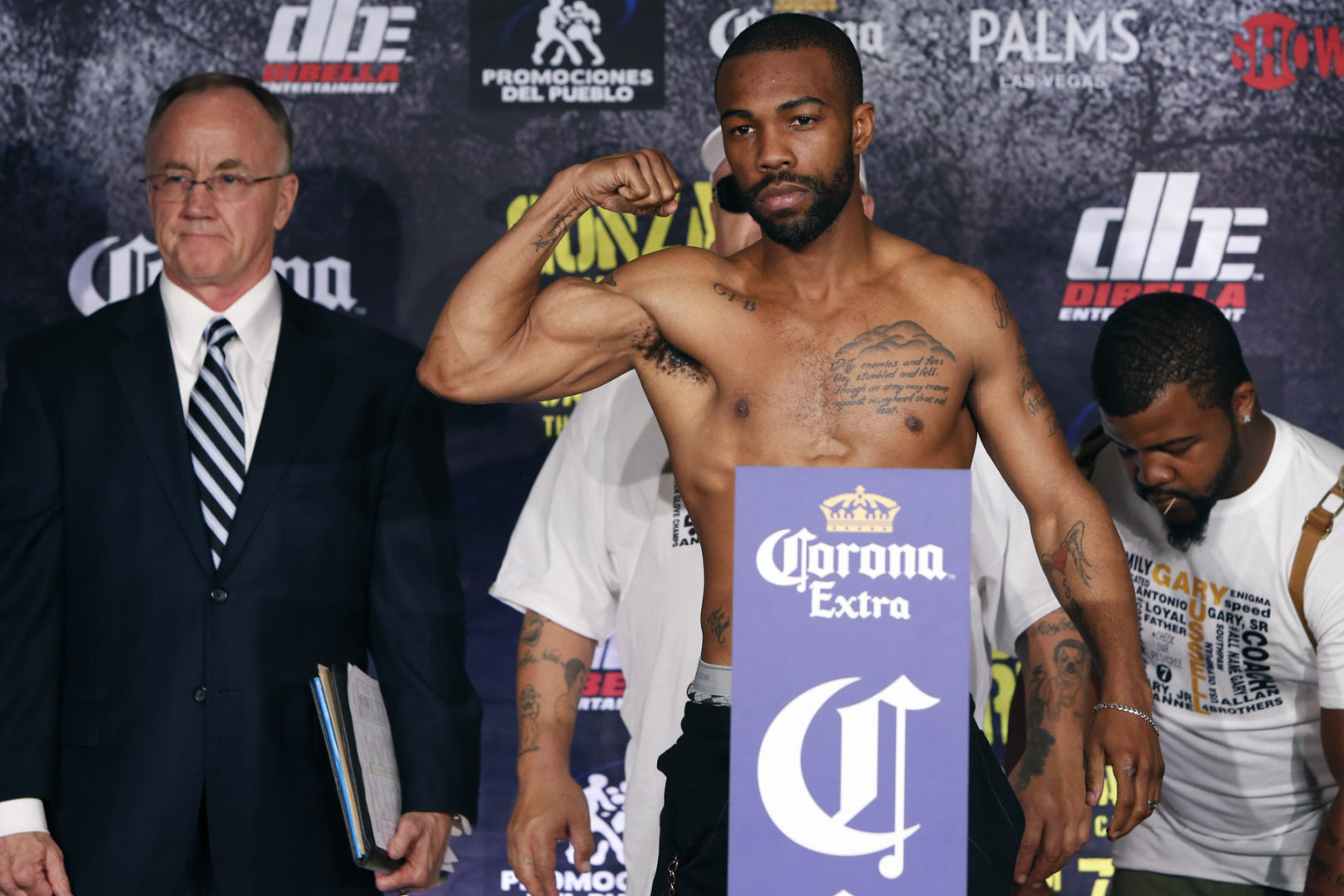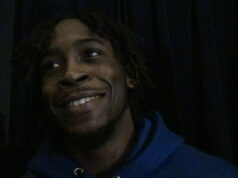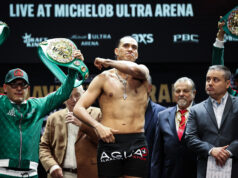By Bart Barry–

Saturday, Showtime’s preternaturally gifted Gary Russell Jr., an Al Haymon fighter, knocked-out the hardest puncher in Mexican history, Jhonny Gonzalez, on Showtime, a Haymon-affiliated network, to seize from Gonzalez the Showtime featherweight title Gonzalez took from Showtime’s Abner Mares a few years back. Whatever the depth of boxing’s featherweight division, and whatever Russell’s postfight protestations, Showtime’s featherweight division now finds itself bereft of fitting challengers for Russell’s crown – and Showtime viewers are admonished, therefore, to raise Russell’s fragile left hand against every hypothetical opponent from here to Nicholas Walters.
Unfortunately there is nothing new or more hyperbolic to say of Showtime’s Gary Russell Jr. than was already said by HBO’s crew 4 1/2 years and nine fights ago. Back then Russell’s membership on USA Boxing’s woeful 2008 Olympic team was viewed with greater skepticism than it is today; time and Deontay Wilder’s semisuccess, and the still-worse showing by USA Boxing in 2012, all, made shouting “2008 Olympian” somehow more positive Saturday on Showtime than it did when Russell began underachieving on HBO, who honored what remained, then, of its journalistic integrity by noting Russell did not even compete in the 2008 Olympic Games.
While it would be impossible to mark the day on which HBO completed its transition from broadcaster to promoter, historians might find riches worth mining in a review of a Boxing After Dark telecast on Sept. 3, 2011, one that featured an Andre Berto-rehab assignment in its main event and Gary Russell Jr.’s HBO debut in an eight-rounder on its undercard:
“Gary Russell Jr. is an ex-cep-tional talent!” cheered Max Kellerman before the opening bell even rang. “I think, Roy (Jones), he’s a gold-medal-caliber talent.”
“I hear his hands are almost as fast as mine used to be,” Jones answered, rhetorically, with what autobiographical modesty marked his every broadcast. “He’s got to be a gold-medal talent.”
In round 2 Kellerman strayed dangerously close to insubordination when, in an attempt to define Russell as both a supreme offensive force and a supreme defensive one, he ran afoul of Jones’ definition of a “boxer” – which Jones promptly made indistinguishable from other styles, specifically the difference between a “boxer” and a “boxer!”
“Signs of a great fighter, son,” added Jones in round 4. “Great hand-speed. Great power. Great defense. (Russell) has the total package.”
Comically, Kellerman then explained the hardest challenge to come for Russell’s people would be resisting temptations to move Russell too fast – since he was so outclassing the guys a lesser prospect would face at this point in his career. Caught under the spell of his own salesmanship, then, Kellerman asked Jones if room even remained for Russell to improve.
As the end of the fight neared, and Russell had failed even marginally to imperil someone named Leonilo Miranda, Kellerman looked ahead rosily:
“It’s not so much of a stretch to imagine (Russell) and Nonito Donaire in the winners bracket of a super fight at 130 pounds – two, three years down the line.”
Almost.
Four and a half years down the line, Russell finally won a title from an ancient Jhonny Gonzalez on the same day Donaire steamrolled someone named William Prado, off-television, somewhere in the Philippines.
While Russell seems like a good guy with talent, and certainly his managerial shop has produced lesser items in recent years, the fact remains no one should be excited about Russell, and excepting only those who are paid to act excited about Russell, no one genuinely is. Russell landed one great punch Saturday, a counter whose power derived mostly from Gonzalez’s sloppy aggression in the closing instants of round 3, and the rest of the stoppage came via Russell’s venomous flailing in round 4, Gonzalez’s despondency, and referee Tony Weeks’ mercy.
When Russell lacks power, generally, it is because he is afflicted with something like front-foot-itis, a condition that plagued the 2008 U.S. Olympic Team. Russell often loads weight on his front foot as an anxious habit more than a strategic consideration, in a vestigial tick from his time in USA Boxing, when all the sweet science was reduced to reflexes and conditioning. Trained by men who idolized Roy Jones Jr., in 2008 Team USA believed in leaning forward, triggering an opponent’s jab, and then yanking back on one’s chin and weight while snapping a counter hook at one’s trapped opponent. Of course, when these counter hooks did not land, or got simply blocked, there was nothing for the American Olympian to do but retreat, bounce, and reset his weight over his front foot.
The medal count that year confirmed the approach’s sagacity.
Saturday’s most interesting revelation, though, came in the celebration of Jhonny Gonzalez’s now-extraordinary power, a concussive force he did not have until his first-round elimination of Showtime’s Abner Mares in 2013. Before then, Gonzalez was another sturdy Mexican, whose career and life, likely, were shortened by Israel Vazquez in 2006.
I was ringside for five Gonzalez fights, in Jhonny’s actual prime, and not once do I recall anyone talking about his historic power. He had good technique and made entertaining fights, and had a great nickname, “Jhonny”, but if anyone had said at the time Gonzalez packed more relative power than, say, Rafael Marquez – an assertion Showtime implied by implying trainer Nacho Beristain labeled Gonzalez as Beristain’s hardest-hitting champion ever – he’d have been laughed right off the writers’ table at Desert Diamond Casino.
The game certainly has changed. Back then, a cable network like Showtime would call an advisor like Al Haymon a “power broker.” Today, they call him “Boss.”
Bart Barry can be reached via Twitter @bartbarry









